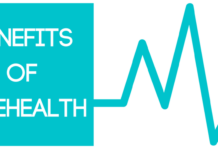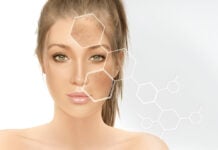Living with psoriasis is more than managing flaky skin and red patches. For millions of people worldwide, this chronic autoimmune condition is a daily emotional battle, silently impacting self-esteem, relationships, and overall mental well-being. While the visible symptoms of psoriasis often draw the most attention, the invisible weight it places on a person’s mental health can be just as significant and sometimes even more disabling.
The Hidden Burden of Psoriasis
Psoriasis affects about 2–3% of the global population and can occur at any age, though it most often begins in early adulthood (World Health Organization [WHO], 2016). It is characterized by rapid skin cell turnover, leading to thick, scaly patches that are often itchy and painful. While it is not contagious, the visibility of lesions can make those living with psoriasis feel socially isolated or stigmatized.
Imagine waking up every morning unsure of whether your skin will flare. Or dreading social interactions because you are worried people will stare or judge. That is the daily reality for many living with psoriasis. This constant vigilance and fear of judgment can take a heavy toll on mental health.
The Link Between Psoriasis and Mental Health
Numerous studies have found strong associations between psoriasis and psychiatric conditions such as depression, anxiety, and even suicidal ideation. In fact, people with psoriasis are nearly twice as likely to suffer from depression compared to those without the condition (Singh et al., 2017). The reason is multifactorial.
First, there is the psychological distress of having a visible, chronic skin disease. Then, there is the pain and discomfort that interfere with sleep and daily activities. Psoriasis can also impact body image and sexual confidence, leading to strained personal relationships. Additionally, because it is an autoimmune disorder, psoriasis can involve systemic inflammation, which is also linked to mood disorders (Dowlatshahi et al., 2014).
Breaking the Silence
One of the most important steps in coping with the emotional burden of psoriasis is acknowledging it. Too often, people feel like they have to “tough it out” or focus only on physical treatments. But mental health deserves just as much attention.
It is crucial to talk openly with family, friends, and healthcare providers about how psoriasis is affecting your emotional state. Mental health should be part of the routine conversation during dermatology visits. Unfortunately, studies show that many patients do not bring up these concerns unless prompted (Mrowietz et al., 2014). But opening that door can lead to better, more holistic care.
Practical Coping Strategies
While there is no cure for psoriasis, there are many ways to support mental well-being while managing the condition.
- Therapy and Counseling
Speaking with a psychologist or counselor, especially one experienced in chronic illness, can be incredibly healing. Cognitive behavioral therapy (CBT) has been found effective in reducing anxiety and depression in people with psoriasis (Fortune et al., 2004). - Support Groups
Whether online or in person, connecting with others who understand your experience can lessen feelings of isolation. Sharing tips, frustrations, and victories can create a sense of community and belonging. - Mindfulness and Stress Reduction
Stress is a well-known trigger for psoriasis flares. Practices such as meditation, yoga, and deep breathing can help calm the nervous system and reduce flare-ups. A study by Kabat-Zinn et al. (1998) found that mindfulness-based stress reduction helped improve skin clearance in psoriasis patients undergoing phototherapy. - Self-Compassion and Positive Self-Talk
Chronic illnesses often come with a harsh inner critic. Replacing negative self-talk with gentle, compassionate affirmations can shift your mindset. Remember, your worth is not defined by your skin. - Healthy Lifestyle Choices
Eating an anti-inflammatory diet, getting regular exercise, and avoiding smoking or excessive alcohol can not only improve your physical symptoms but also boost your mood.
It is easy to feel overwhelmed by psoriasis, especially when flare-ups seem never-ending and emotions run high. But know this: you are not alone. Psoriasis may be a chronic condition, but it does not have to define your identity or your happiness. With the right combination of medical treatment, emotional support, and self-care, it is possible to lead a full, joyful life.
The path to wellness is not just about managing plaques and creams. It is also about healing the invisible wounds, the ones no one sees but that weigh just as heavily. Speaking up, seeking help, and caring for your mental health is not weakness. It is courage. And you deserve that kind of care every day.
References
- Dowlatshahi, E. A., Wakkee, M., Arends, L. R., & Nijsten, T. (2014). The prevalence and odds of depressive symptoms and clinical depression in psoriasis patients: A systematic review and meta-analysis. Journal of Investigative Dermatology, 134(6), 1542–1551. https://doi.org/10.1038/jid.2013.508
- Fortune, D. G., Richards, H. L., Griffiths, C. E. M., & Main, C. J. (2004). Psychological stress, distress and disability in patients with psoriasis: Consensus and variation in the contribution of illness perceptions, coping and alexithymia. British Journal of Clinical Psychology, 43(Pt 2), 157–174. https://doi.org/10.1348/014466504323088024
- Kabat-Zinn, J., Wheeler, E., Light, T., Skillings, A., Scharf, M. J., Cropley, T. G., … & Bernhard, J. D. (1998). Influence of a mindfulness meditation-based stress reduction intervention on rates of skin clearing in patients with moderate to severe psoriasis undergoing phototherapy (UVB) and photochemotherapy (PUVA). Psychosomatic Medicine, 60(5), 625–632. https://doi.org/10.1097/00006842-199809000-00020
- Mrowietz, U., Kragballe, K., Reich, K., Spuls, P., Griffiths, C. E., Nast, A., … & Ortonne, J. P. (2014). Definition of treatment goals for moderate to severe psoriasis: A European consensus. Archives of Dermatological Research, 306, 255–263. https://doi.org/10.1007/s00403-013-1409-0
- Singh, S., Taylor, C., Kornmehl, H., Armstrong, A. W., & Lambert, J. (2017). Psoriasis and suicide: A systematic review and meta-analysis. Journal of the American Academy of Dermatology, 77(3), 425–440.e2. https://doi.org/10.1016/j.jaad.2017.03.070
- World Health Organization. (2016). Global report on psoriasis. https://www.who.int/publications/i/item/9789241565189












